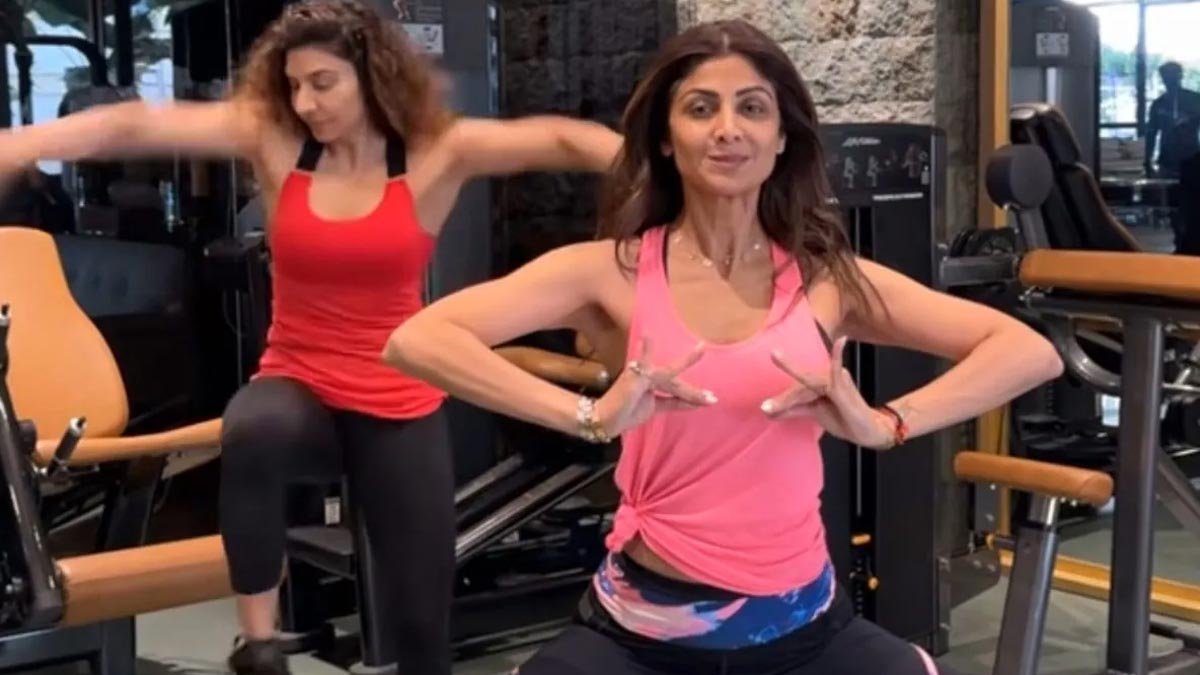
In a recent Instagram update, Shilpa Shetty, a prominent figure in Bollywood, showcased her innovative approach to fitness by blending dance with aerobics in a captivating display. With her trademark elegance and panache, she seamlessly synchronized her movements to the rhythm, proving that exercise can be both effective and enjoyable. Shilpa coined this unique routine as "Sab taal-mel ka khel," highlighting the seamless integration of music and physical activity. Joined by her fitness coach Yashmeen Chauhan, Shilpa embodied the mantra, "Keep moving to stay motivated," echoing her overarching philosophy of "Swasth Raho, Mast Raho" (Stay Healthy, Stay Happy).
Table of Content:-
Dancing Towards Optimal Health
View this post on Instagram
Dance: A Pathway to Wellness
Regardless of whether you're a seasoned dancer or a novice, incorporating dance into your fitness regimen offers a multitude of health benefits that extend beyond mere physical conditioning.
Physical Well-being
Dance for Cardiovascular Health
Dance serves as a dynamic cardiovascular workout, aligning with established guidelines for physical activity. By elevating heart rate and improving circulation, it contributes to enhanced heart health similar to other aerobic exercises.
Also Read: K-Drama Star Song Joong Ki’s Secret To Fitness; Here’s Everything To Know About It
Strength and Balance Enhancement
With movements spanning various planes, dance fosters comprehensive strength development and balance improvement. Unlike conventional exercises, dance engages muscles holistically, ensuring comprehensive muscle activation.
Inclusivity and Adaptability
Many dance styles, including ballroom, cater to individuals with diverse mobility levels or health conditions. With appropriate modifications, dance remains inclusive and accessible to everyone.

Mental Wellness
Cognitive Enrichment
Studies indicate that dance promotes cognitive vitality by enhancing memory and cognitive skills. The intricate demands of dance, such as rhythm and coordination, stimulate brain regions associated with cognition.
Intellectual Stimulation
The intricate choreography of dance presents cognitive challenges, requiring focus, memory retention, and quick decision-making. Tap dancing, in particular, exemplifies the cognitive demands of dance with its intricate footwork sequences.
Emotional Health
Inclusivity and Social Integration
Dance transcends barriers, providing a platform for universal participation. Its inclusive nature fosters a sense of belonging and community, appealing to individuals who may feel excluded from traditional exercise settings.
Social Interaction and Mood Elevation
Whether participating in dance classes or dancing with loved ones, the communal aspect of dance strengthens social bonds and uplifts mood. The expressive nature of movement enables emotional release, alleviating stress, anxiety, and depression.
Embarking on Your Dance Journey
Exploring Your Dance Style
Begin your dance journey by exploring various styles that resonate with your interests and preferences. Research different genres to discover those that ignite your passion and curiosity.
Formal Instruction
Enroll in dance classes at specialized studios or fitness facilities to receive formal instruction. From introductory sessions to advanced workshops, structured guidance facilitates skill development and technique refinement.
Utilizing Online Resources
Explore online platforms offering instructional dance videos and tutorials. Whether through formal programs or user-generated content on platforms like YouTube, virtual resources provide accessible avenues for learning and practising dance.
Embrace the Dance
Embrace the transformative power of dance as a conduit to holistic well-being. Beyond its physical benefits, dance nurtures mental acuity, emotional resilience, and social connectedness. So, lace up your dancing shoes, embrace the rhythm of life, and embark on a journey towards vitality and joy.
Also watch this video
How we keep this article up to date:
We work with experts and keep a close eye on the latest in health and wellness. Whenever there is a new research or helpful information, we update our articles with accurate and useful advice.
Current Version